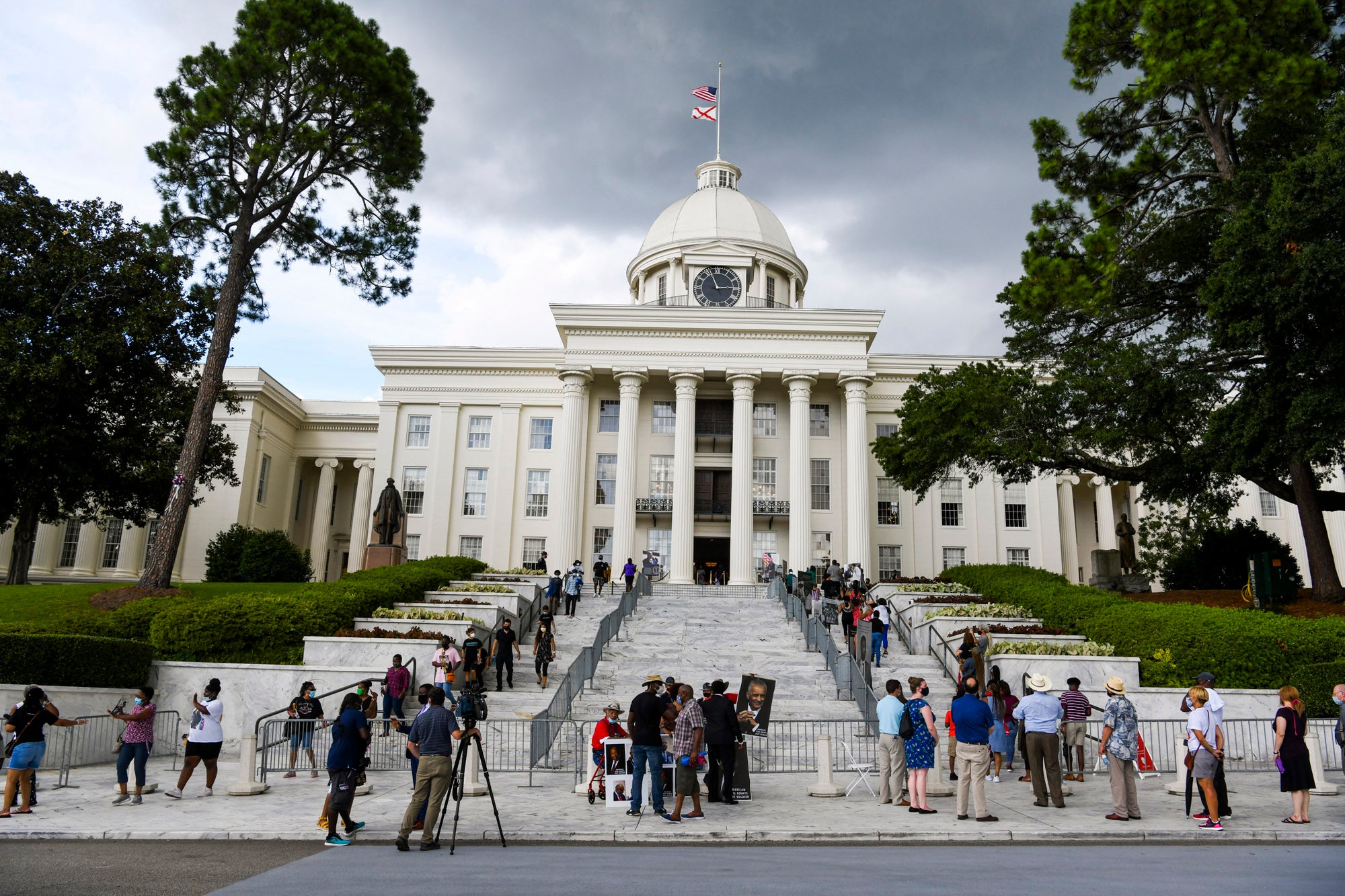Alabama approves bid to cut racist phrases from its 119-year-old constitution
Overwhelming majority votes in favour of removing racist language from constitution ‘written to codify white supremacy’

Voters in Alabama have approved an amendment to remove racist language from the state’s 119-year-old constitution, which was introduced to entrench a system of apartheid during the Jim Crow era.
The overwhelming majority of voters in the largely white, conservative state was in favour of the proposal, which allows state officials to rewrite the constitution cutting racist sections.
With more than 1.7 million votes cast, the amendment passed with 67% support. That means more than 585,000 people voted against it.
Courts have long since struck down the system of rigid segregation that was enshrined in the 1901 Alabama Constitution, which was “written primarily to codify white supremacy,” according to the Encyclopaedia of Alabama.
But while unenforceable, sections that separated students by race, banned mixed-race marriages and allowed poll taxes that disenfranchised Black voters were still part of the state constitution.
“I just want to get rid of that language. It just doesn’t make any sense nowadays,” said Glenn Crowell, a 63-year-old retired restaurateur and registered Republican in the state capital, Montgomery.
Crowell is Black and said he voted to strip away the old phrasing, which the amendment’s sponsors viewed as an embarrassment and potential roadblock to economic development.
The majority of voters in Alabama often align with the Republican Party and tend to have more conservative views. In the state, Republicans have won every presidential election since 1980, and preliminary results indicate that Donald Trump won some 62% of the vote in the 2020 US Presidential election.
Alabaman voters have rejected similar proposals twice since 2000 and have resisted against anti-racist changes to the constitution in the past.
In 2000, Alabamans voted to take out a section of the constitution that vowed to “never pass any law to authorise or legalise any marriage” between white and Black people – whom it referred to with the N-word. More than half a million people, some 40% of all voters, opposed the measure, which did not pass in some rural counties.
In 2004, Alabamans voted against a proposal to clean up the constitution, removing racist language, references to poll taxes and the ban on mixed-race marriages, among other things. Conservatives argued that the move to remove a section about education could result in higher taxes.
In 2012, a similar measure failed because education groups feared that the proposal hid an attempt to undercut public schools – underscoring the complexity of Alabama’s constitution, which has 948 amendments and is among the longest in the world.
The passage of the proposal in 2020, known as Amendment 4, eased the fears of supporters, who worried that conservative backlash to the Black Lives Matter movement could hurt the measure.
Amendment 4 had qualified for the ballot with bipartisan legislative support months before demonstrations erupted across the US in the wake of the police killing of George Floyd.
But this time, the measure faced no organised opposition and passed easily. The ballot didn’t mention race, and some voters might not have even known what the amendment involved.
State governor Kay Ivey, of the Republican party, didn’t take an official position on any of the six amendments that were on the ballot, including the anti-racism measure.
Statehouse workers will now have to create a draft excising offensive wording, although sponsors said it was unclear exactly how much might be removed.
Legislators will consider the updated document in 2022, and voters would have to approve the changes again before they take effect.
Aside from cutting racist phrasing, the amendment also allows the state legislature to remove repeated language and combine sections related to economic development or specific counties.
Information technology specialist Phillip Evans, who is Black and voted for Democrat Joe Biden for president, voted for the change.
“That wasn‘t one of the major ones that I was looking at but I saw it in there and I was like, ‘Yeah, that makes sense,’” said Evans, 41.
Other states also voted to get rid of the remnants of racism in their flags and names. Voters in neighbouring Mississippi voted to replace their confederate-themed flag with magnolia and the phrase “In God we trust”.
Similarly, Rhode Island voted to drop the phrase “providence plantations” from the state’s official name, which used to be “State of Rhode Island and Providence Plantations”. Another attempt to change the state name had failed in 2010.
Additional reporting by AP
Join our commenting forum
Join thought-provoking conversations, follow other Independent readers and see their replies
Comments
Bookmark popover
Removed from bookmarks